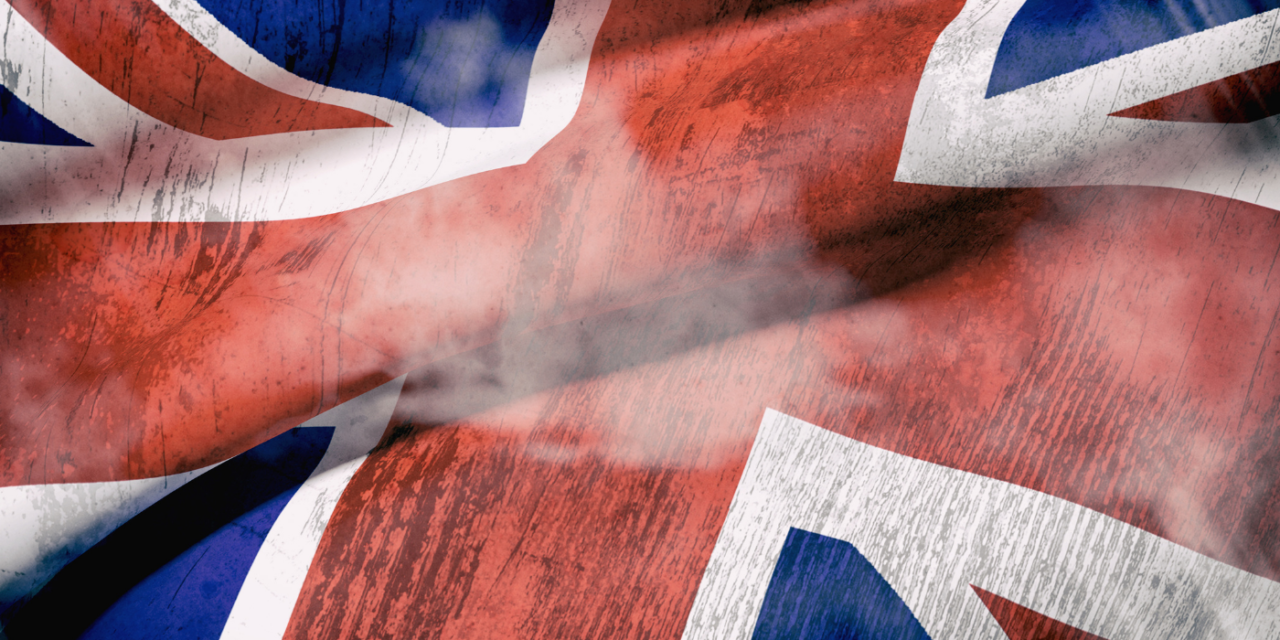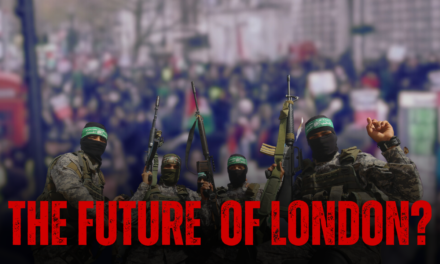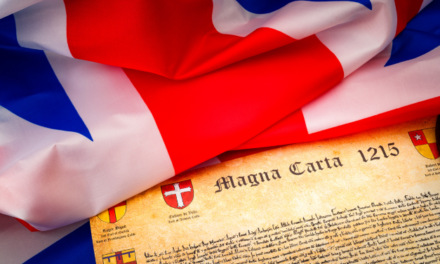Why is it that the society, culture, freedoms and responsibilities we enjoy, which were hard won and refined in the furnace of history, are now in jeopardy?
The UK Government defines extremism as “vocal or active opposition to fundamental British values” and its Prevent strategy defines “British values” as
“democracy, the rule of law, individual liberty and mutual respect and tolerance of different faiths and beliefs.”
These statements sound fine on the surface however, they fail to distinguish between respect for people and respect for ideas 1 Whilst we must surely respect all individuals and their right to hold opinions that are different from ours, much like a Capitalist does not respect the ideas of a Marxist and an Atheist does not respect the ideas of Buddhist, the Government cannot demand that all people respect ideas and ideologies such as Islam or the Transgender movement; and yet, this is what is happening.
Whether driven by genuine belief in the virtue and moral equivalence of all ideas and ideologies or by the desire to preserve community cohesion and in the interests of “public order”, “public safety” and the “prevention of disorder” 2 , the UK Government, police and legal system are using legislation to silence people with whom they disagree and to strip individuals of their human rights. Targeted groups include Christian street preachers and individuals challenging the unquestioning affirmation approach to transgender requests from young children. Politicians, in concert with the justice system, the police, the media and the global technology companies, are crushing any voices of dissent; censoring the voices of anyone who speaks out against the Government’s “progressive” and politically correct narrative.
If these actions are driven by belief in the moral equivalence of all ideas and ideologies this signals the UK Government has abandoned the wisdom present in
Alfred’s Law Code and the Magna Carta – that has protected life, liberty and property for centuries; preferring to legislate in support of Man’s present day,
“progressive” “wisdom”. This “wisdom” advocates: perfect individualism where each person can be whoever or whatever they declare themselves to be and are entitled to the same benefits from society as anyone else; regardless of the impact this may have on others perfect multiculturism where all ideas, cultures and ideologies are of equal virtue and must be afforded the same support from society In this world, state institutions, the media and education system compete with religious fervor to signal their virtuous support for the agendas of minority “oppressed” groups and harass anyone who dares to speak out against present day “progressive” “wisdom”.1 Christian Institute, Christian obedience to government 2 Human Rights Act (1998), Articles 8, 9, 10, 11
2
If these actions are driven by a desire to preserve community cohesion and “public order”, this is misguided short-termism and demonstrates the Government is too ignorant or too fearful to deal with the actual dangers, preferring to act to silence the dissenters rather than examine and address the reasons for dissent. If these actions are driven by an agenda to give the Government the mandate to tackle Islamic extremism and terrorism 3 then the cost, including the loss of our freedom of speech, is too great; the Government should let the extremists speak and their evil will be exposed.
The UK Government legislation provides for the protection of rights but this legislation can be misused to deprive individuals of their rights.
The Universal Declaration of Human Rights (1948) and The Human Rights Act (1998) Although the Universal Declaration of Human Rights made an individual’s rights subject to some limitations to protect th e rights and freedom of others and to “ensure morality, public order and the general welfare in a democratic society” the UK Government, when establishing the Human Rights Act in UK law some fifty years later, saw fit to extend these limitations or conditions and give them a wide range of ill-defined reasons that could be invoked to take away an individual’s freedoms; or place restrictions on people exercising their rights under the Act.
Prohibition of abuse of rights (Article 17) of the Human Rights Act quite rightly prevents: “…any act aimed at the destruction of any of the rights and freedoms set forth herein…” The Act also includes the following caveat in the Articles on the right to privacy and family life, thought conscience and religion, expression and assembly and association (Articles 8, 9, 10 and 11): “The exercise of these freedoms, since it carries with it duties and responsibilities, may be subject to such formalities, conditions, restrictions or penalties as are prescribed by law and are necessary in a democratic society, in the interests of national security, territorial integrity or public safety, for the prevention of disorder or crime, for the protection of health or morals, for the protection of the reputation or rights of others, for preventing the disclosure of information received in confidence, or for maintaining the authority and impartiality of the judiciary.”
3 The use of violence or threat of violence in the pursuit of political, religious, ideological or social objectives.
3
These statements give the UK Government a broad range of options should they wish to silence anyone or deprive anyone of their human rights.
The Metropolitan Police Furthermore, recent statements from the Metropolitan Police define a “hate crime” as: “Any criminal offence which is perceived by the victim or any other person, to be motivated by hostility or prejudice…” The Metropolitan Police have placed the power to define a hate crime as having
been committed into the hands of the “victim” as opposed to using an objective measure. Furthermore, they state: “Evidence of the hate element is not a requirement. You do not need to personally perceive the incident to be hate related. It would be enough if another person, a witness or even a police officer thought that the incident was hate related.”
The Metropolitan Police have declared that there does not need to be evidence of hate for a hate incident to have occurred; so the police require no evidence of hate but may decide that a “hate crime” has been committed. The Metropolitan Police have also declared that even if the victim does not perceive
hate against them: “It would be enough if another person, a witness or even a police officer thought that the incident was hate related.”
So it is possible for someone to report a hate crime on behalf of someone who does not think a crime has been committed against them.
The Crown Prosecution Service (CPS) The Police and CPS have agreed the following definition for identifying hate crimes: “Any criminal offence which is perceived by the victim or any other person, to be motivated by hostility or prejudice, based on a person’s disability or perceived disability; race or perceived race; or religion or perceived religion; or sexual orientation or perceived sexual orientation or transgender identity or perceived transgender identity.
4
There is no legal definition of hostility so we use the everyday understanding of the word which includes ill-will, spite, contempt, prejudice, unfriendliness,
antagonism, resentment and dislike.” This statement defines a hate crime as any criminal offence that is perceived by absolutely anybody to be motivated by things like unfriendliness or dislike.
5
In Summary We now live in a country where an individual can be deprived of their human rights – including the right to privacy, freedom of thought, conscience or religion and freedom of expression:
• Because the UK Government deem it necessary to prevent disorder, preserve “community cohesion” or to protect the reputation and rights of others 4 .
• Because the “victim” or any other person perceives the motivation to be hateful (and no evidence needs be provided) or perceives the action to be
motivated by unfriendliness or dislike. Whatever your belief, passion or conviction, this legislation with the supporting statements from the police and CPS should terrify us all as, to silence controversial voices or dissident opinions risks increasing tension in society and creating extremism. It should be noted that silencing dissent is the first step of the kind of extremism seen in Hitler’s fascist Third Reich and Stalin’s communist regime. As a famous philosopher once pointed out, if we lose free speech we may lose the opportunity for the truth to shed light on error; for good to expose evil. As the UK Government continues to use every weapon in its armory to silence any voices that challenge their liberal-head-in-the-sand-perfect-individualism-perfect multiculturism ideology, desperate in their misguided attempts to preserve “community cohesion” and a “peaceful society”, they are silencing the very voices that cry out about the dangers we face. Have we learnt nothing from the horrors of the industrial-scale rape of young white girls across our nation by predominantly British Pakistani Muslims, covered up by a conspiracy of silence between the police, the councils and the politicians because of political correctness and fear of being
accused of racism. This horror will seem insignificant in the light of the societal changes that are coming if people are not able to speak out about threats to our society, culture and freedoms.
4 Human Rights Act (1998), Articles 8, 9, 10, 11




